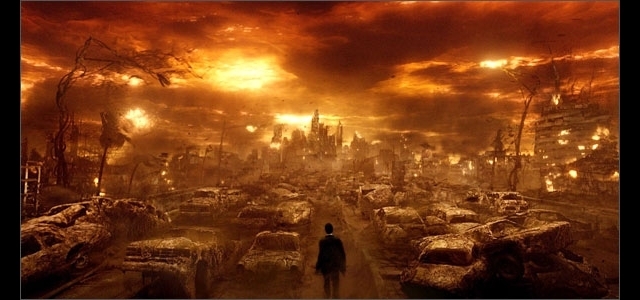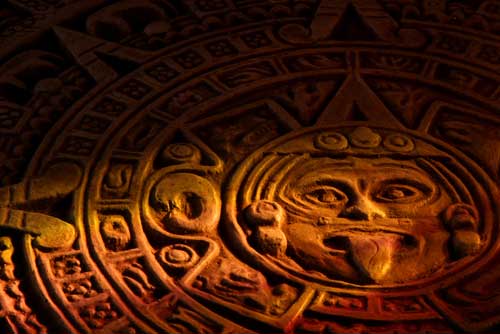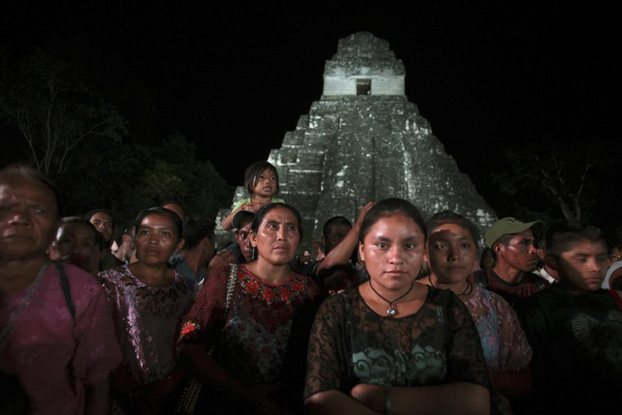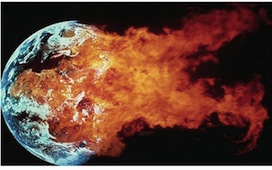
Posted by GRReporter
 ''The end of the world is a very successful marketing strategy and
scenarios for various types of Armageddon come alive every five-ten
years,'' said for GRReporter Nikos Matsopoulos, specialist of
the National Observatory of Athens (NOA)'s Institute for Astronomy,
Astrophysics, Space Applications and Remote Sensing (IAASARS). He
believes that all those created products, goods, books, movies, services
and "safe havens" for escape made the more enterprising among us rich
on the basis of a statement which has no scientific justification. "It
is a well-prepared advertising campaign", emphasised the astronomer.
''The end of the world is a very successful marketing strategy and
scenarios for various types of Armageddon come alive every five-ten
years,'' said for GRReporter Nikos Matsopoulos, specialist of
the National Observatory of Athens (NOA)'s Institute for Astronomy,
Astrophysics, Space Applications and Remote Sensing (IAASARS). He
believes that all those created products, goods, books, movies, services
and "safe havens" for escape made the more enterprising among us rich
on the basis of a statement which has no scientific justification. "It
is a well-prepared advertising campaign", emphasised the astronomer.The scientist was quick to clarify that the 21 of December, 2012, for the Mayan civilisation was like the

end of the millennium for our culture. This date does not necessarily reflect the end of the world but the end of a period, according to the chronology of ancient people. "They say that the polar magnetic fields will change places - yes, this is true, but it will not happen today or tomorrow. We are 4,000 or perhaps even 500,000 years away from that moment. Whenever it might happen, we cannot determine a specific date for this." Matsopoulos explained that the majority of predictions for the end of the world are based on real physical phenomena, but they are distorted and given an exact date of occurrence.
"Expectations for the end of the world have appeared in human history since ancient times," said Matsopoulos. He explained, that the idea that life is cyclical dominated among ancient people. In other words, we live, die and are reborn again and everything repeats itself. According to Judaism and Christianity, however, life and existence in general have a linear trajectory - they start somewhere and end somewhere. According to the Bible, this is the Judgment Day or Doomsday.
"There are numerous people who believe in all sorts of things, as long as the particular idea is presented in an appropriate way - in an interesting package," says the scientist, and notes that in the 1980s there

was a specific arrangement of planets and a mass doomsday psychosis also appeared at that time. In 1910, the Earth passed through the tail of Halley's Comet and this caused prophecies of mass destruction, too. False prophets have foretold the end of the world with the appearance of comets Haykutake (1996) and Hale-Bopp (1997), as well as on the eve of the new millennium (2000).
Nikos Matsopoulos said that humanity wants to believe in the myths it itself creates. It needs to nourish and develop them. Ever since ancient times, when science was not that extensive, the idea of the end of the world has given people a time frame within which they had a chance to become truthful and thus redeem a place in heaven. The same trend, but with a strong commercial character, is seen today.
"The end of the world, which we do not expect to happen for the time being, will be established by science, not

religion. Various things happen in space, which, if they happened around the Earth, could be catastrophic for us. The movement of any of the cosmic bodies that have been described to date does not threaten the existence of the Earth in the near future or, in other words, in the next few thousand years," Matsopoulos concluded.
During the whole day on December 21, the Internet was

flooded with a variety of comments regarding the end of the world. Some of them included "It turned out that the Mayan calendar did not end on the 21st, but continued on the next page", "The world will not be destroyed because there is a great party on the 22nd", "Too bad that the Mayans failed - I will not get away with it and I will have to pay taxes again", or especially regarding Greece: "They do not respect anything in this country anymore. They destroyed even the end of the world. Outrageous!"
http://gogreece.about.com/gi/o.htm?zi=1/XJ&zTi=1&sdn=gogreece&cdn=travel&tm=6&f=22&su=p531.60.342.ip_&tt=2&bt=0&bts=0&zu=http%3A//www.grreporter.info/en/

No comments:
Post a Comment